Eight years ago the team at ThriveLogic TMS + NeuroHealth (ThriveLogic) began providing Transcranial Magnetic Stimulation (TMS) as an alternative option for treating depression. Just like medications or talk therapy, TMS is one tool in the depression-treatment “toolkit” providers are using to help people live healthier, happier lives.
Over the years , it has become clear that the people providing the care make a big difference—specifically the people doing the TMS treatments. Professionally, these individuals are known as treaters, coordinators, therapists or technicians. They are integral to a successful clinical endeavor. Our team initially started with one treater, and today we have grown to three treaters, all of which are committed to excellence.
, it has become clear that the people providing the care make a big difference—specifically the people doing the TMS treatments. Professionally, these individuals are known as treaters, coordinators, therapists or technicians. They are integral to a successful clinical endeavor. Our team initially started with one treater, and today we have grown to three treaters, all of which are committed to excellence.
This article shares insights from the perspectives of our treaters on our TMS process.
Kari Ann Pandyra, RN, BSN, BS | TMS Coordinator
TMS utilizes magnetic energy to help our brains function. It is one method of treatment that can be used for helping people suffering from depression.
With limited brain health awareness and the daily stressors in our society, we often feel the need to mask or deny our true feelings. Time and time again people reveal that no one knows what they have been going through, whether it be a complete loss of hope, blahness, numbness, dark and scary thoughts, or a combination of these feelings. In my experience, I feel that TMS empowers individuals to be able to throw off the mask and just focus on themselves and their wellbeing. I am tirelessly cheerleading to promote a healthy and happy quality of life for all in providing access to this incredible therapy.
As a nurse, I have been working with TMS for several years, both in the university hospital and private settings. One of my favorite memories is of a woman who came into our office extremely depressed. She avoided any interaction and sat in silence throughout her early sessions. After a couple of weeks of TMS, she began initiating conversation. She startled me one day when she let out a giggle. By her last treatment, she was chatting, sharing articles to read, and even laughing! Her doctor actually thought he had the wrong room when he heard laughter coming from inside.
Often TMS sounds too good to be true, but after witnessing the treatment experience day 1-30, I see people walking taller and standing brighter. Our brain health is priceless. Understanding that TMS is another tool in treating depression can open new doors for people to achieve a positive change.
Sandy S. Gaskins, RN | TMS Insurance Coordinator
By the time we see TMS patients, they have just about tried anything and everything to feel better again. They are treatment-resistant after all. Often they are at a point in their illness where they are thinking, “if this doesn’t work, then nothing will, and I don’t know what I’ll do.”
We TMS treaters play a critical role in the success of treatment. When I think of the time I share with a patient in the TMS room over a typical treatment course, I not only focus on ensuring the energy source is positioned correctly and develop a rapport with the patient, I also strive to offer something the patient may have lost—hope.
TMS gives an option for patients who have run out of options, and in this business of mental health and depression treatment, options are hope.
Madison H. West | Chief Operations Officer
TMS is a straightforward therapeutic process with daily treatments typically lasting six weeks. This time investment can seem daunting to some, but in my professional experience, it is a commitment that thousands of people are glad they made.
Coming from a non-clinical background, TMS was something completely new and different to me just as it is to most patients. However, it was in the first few weeks of being exposed to the TMS process that I saw the true life-changing impact a simple magnet can have in treating depression. During a TMS treatment session, many patients opt to listen to music, podcasts, read a book or talk. A treater is present to listen, which I feel helps the engagement process between the treater and patient.
Suffering from a mental illness like depression is one of the most challenging things anyone can go through. TMS is an option that can create a positive, transformative impact.
What do we know about brain health and TMS as a treatment option?
- Clinically, we have seen TMS produce life-changing results, and it can instill hope in those affected by depression and accompanying symptoms. We have also seen success with those looking to improve brain acuity.
- In general, people tend to visit specialists for all other ailments, yet they are hesitant to see a brain specialist, (aka a psychiatrist). The brain is the control center of it all.
- Additionally, people commonly focus on being physically fit and healthy, but what defines “physical health” if one is unable to enjoy it emotionally?
- For treatment, TMS is a proven tool among many other clinically-sound options used to combat depression and distress. Everyone to one degree or another has experienced some level of emotional suffering. Sometimes our brains just need a little extra Tender Loving Care too.

